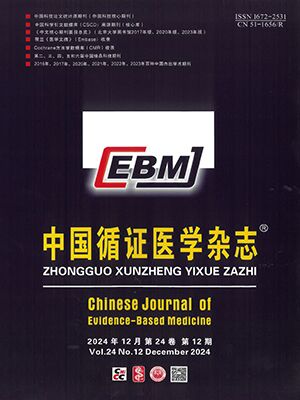Objective To evaluate the clinical effectiveness, safety, cost-effectiveness of eight angiotensin converting enzyme inhibitors (ACEIs) in order to provide evidence for adjustment of Essential Drug List in China.
Method Collecting all clinical trials by searching Medline, Cochrane Library, Embase and Chinese Biomedical Database and conducting critical appraisal. High quality randomized controlled trials and systematic reviews were included to assess the effectiveness of ACEIs. Non-randomized controlled trials were also included to evaluate the safety and cost-effectiveness.
Results New generation of ACEIs are better than enalapril and captopril in antihypertension and endurance. Meta-analysis showed that T/P ratio was less than 50% in prindopril, benazepril and captopril. Enalapril and captopril had the most adequate evidence in the treatment of chronic heart failure. The effects of lisinopril, prindopril, benazepril and cilazapril positive influence on heart failure were assessed by surrogates. Captopril, lisinopril could reduce the total death rate of acute period (during 36 hours of AMI). Enalapril, captopril, ramipril and prindopril had the effect of heart protection in late period of AMI (3 days after AMI). Only ramipril, lisinopril and prindopril had evidence to support the protective effect on cerebral vessels. The available evidence, though not adequate, showed all the ACEIs except benazepril could diminish proteinuria and delay the renal failure. The new generations of ACEIs were similar in adverse reactions to enalapril and captopril, while incidences were lower than enalapril and captopril. Few evidence on cost-effectiveness of ACEIs were identified. The available evidence showed enalapril was cost-effective in treating heart failure. However, it compromised to lisinopril. The studies on ethics were not available.
Conclusions It was difficult to generally rank the eight ACEIs according to available evidence. Not all eight ACEIs had adequate evidence in organs protection. It was suggested that clinicians should select ACEIs with adequate evidence to treat patients on states.
Citation: DONG Birong,CAO Liya,ZHOU Yan,XU Ying,LAN Fen,SU Defen,XIAO Aili,CHANG Xinxia,DU Jianzong,WANG Hui,LI Youping. Health Technology Assessment of Eight ACEIs for Hypertension. Chinese Journal of Evidence-Based Medicine, 2004, 04(1): 15-28. doi: Copy
Copyright © the editorial department of Chinese Journal of Evidence-Based Medicine of West China Medical Publisher. All rights reserved




